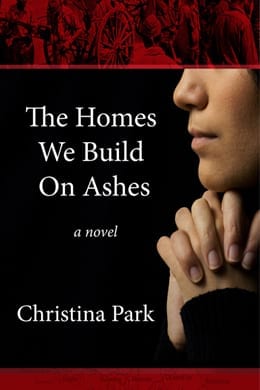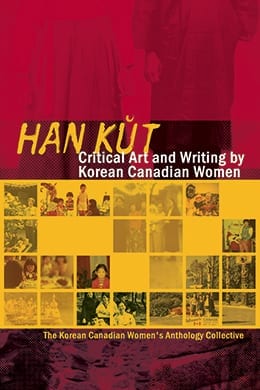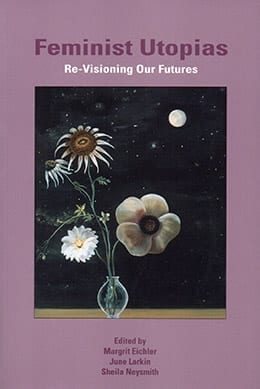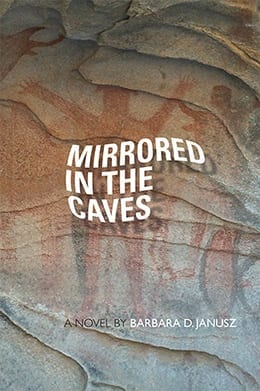From Chapter 1:
No time is a good time for a city to burn down, but at around seven o’clock that November evening, it seemed to be a good a time as any. The streets were spectral and a supernatural ambience filled the atmosphere with ambiguity and uncertainty. From the sky descended an indistinct twilight blending unremarkably with the crepuscular evening. The horizon looked close and prosaic, like a low and suspicious apparition. Out of nowhere, as if blared out directly over the curfew loudspeakers like some official announcement, a blood-curdling shriek could be heard across the neighbourhood. It was so loud it rang like a siren, followed by clamorous howls and vehement curses by frightened and agitated folks running in all directions.
Startled, Nara and the group gathered in her home that evening ran out on to the streets, as well as neighbours and surrounding villagers. At first confused, they looked at each other wondering what all the commotion was about, ascribing it to some drunken soldiers or a group of mischievous children playing a prank, all unsure if the raucous was from men or boys. Suddenly someone pointed up towards the top of the hill and then, the world stopped, choking on its own folly.
***
Sun-hi could hear her mother rustling in her room. “Oma,” called Sun-hi. “Oma! Lunch is ready. Young-min, come and have some lunch!”
Sun-hi had already been up for hours having prepared breakfast for her younger sister, Young-min, long before the abundant rays of the sun cracked through the broken diorama of the city. Throughout the morning, they played together and pretended to be at school as the sun inched its way overhead with no help from the winds today. When lunchtime approached and her mother had not yet emerged from her sleep, Sun-hi proceeded to prepare a meal without a second thought. Even at the tender of age of thirteen, like the eldest child of any Korean family, she was the head of the household in the absence of any parents — which happened more often than was right. Her mother must have been exhausted, thought Sun-hi, and like a good daughter, left her to rest while she went about the daily chores of cooking and cleaning. Young-min, only five years old at the time, rubbed her eyes and barely made it to the table, yawning and already yearning for her afternoon nap.
Young-min had hardly heard her sister call. She was deaf in one ear and nearly entirely deaf in the other. During an air assault a year earlier, when the sky fell black with the menacing screech of bombers overhead, she was running for cover with the rest of her family but being so young, her legs were more ambitious than her little feet allowed. She lost her footing and did not fall in the right spot as so often happens when Fate rears its head in scenes in which it should have no concern. As the formation of allied bombers flew past, one explosive ended up falling too close to her, exploding with the expected vigour and grand display of spewing dirt and accompanying boom which caused her ears to bleed out. As Young-min fell back from the potent force, she looked up and saw a formation of dragons fierce against the red sky fly onward and sound faded from her forever. Moments later she regained herself. Still alive and relieved she was not actually seeing demons, she teetered back to her feet and ran to her beseeching mother’s arms in a nearby ditch. But as she leaped to her mother Nara’s arms she grew quickly confused at how the world had become so quiet. Though she wasn’t completely deaf — thank God — from then on, she could not hear the chirping of the birds that flew the very same skies that would eventually assume a blushful haze and left her wondering about the clear sound of laughter and the muffled sound of desperate sobs, starting with her mother’s.
A lovely stew bubbled on the stove and the savoury smell of cabbage, soybeans and chillies wafted through the newly built house filling it with the comfort and flavour of a family secure. Sun-hi brought the stew, cooking pot and all, to the low dining table and set it down and headed back to the kitchen to scoop up some rice.
Nara could see it was already broad daylight, close to midday, when she awoke which was extremely unusual for her and out of sorts but perhaps not unexpected. Finally, she had a home and a proper pillow upon which to rest her head. The pillow was very much like the traditional rolled one she had when she was a child, only this one was not embroidered in silk with large fuchsia coloured flowers but it was similarly hard packed with raw rice and delivered a most restful night’s sleep which was more than good enough for her — she did not miss the embellishments. It must have been when she laid her head on it the night before, the dreams she had missed viewing for years — pushed off for fear of hope- must have rushed quickly back like the flood gates to a secret land flung open wide, keeping her there in a place between heaven and earth a little longer. She stretched her arms first and then her torso, a sweet lingering extension of her body and joy, even surprise, struck her at how refreshing a simple thing could be. A profound smile must have painted itself quite openly across her face for she only recognized the stark contrast to a strange mix of sadness and remonstrance that would descend on her only a moment later. She got up to pull back the curtains of her room and paused, grasping the curtain as a baby fists a mother’s finger. She could not believe she had curtains in her home and windows to match. Even to hope for a piece of clean, untattered cloth seemed forbidden to her not long ago. She could not help but heave a deep breath, close her eyes and quake gently at recognizing the irony. For years earlier, she had become a victim of a chaotic diaspora of the labour conscription. As a slave labourer, she was never able to own any of the fabric she wove, only able to touch it as the silk slipped through her fingers, moment after moment, day after appalling day. She was often beaten, nearly starved, and left in dirty, unlit quarters shared by dozens like her in small cramped rooms. Those years in the factory in the land so very close but an eternity away stole part of her soul, left her bitter and angry and leaving her to look for God at a time when none could be found. Later, she heard God was in short supply at that time, missing, absent or deaf as much in Asia as he was in Europe for the wails of millions were lifted up towards him but were ostensibly cast aside falling upon nothing but ashes.
Nara’s brow darkened and her frown so heavy that it cast a shadow in her eyes as she uttered beneath her breath language of contempt that if violent would have left her enemy in the dust. But, by the same breath, if one saw her and heard her for that brief moment, one might faintly hear reason in her heart and might be moved to think that this passionate reaction to a memory gave her an unusual sensibility, for in her spasm of angry disgust, she was still not vicious or fanatical as she often witnessed or experienced herself but simply knew she was wronged. There was still a sense of justice despite there every reason not to be.
She was born in the year of the March First Movement, also known as ‘Sam-il’ Movement of 1919 when ‘occupation’ was a dirty word but ‘assimilation’ was criminal. When she was still very young, Nara’s father explained to her that she was born in a very special year when some brave nationalists spoke up against the repressive and brutal colonial occupation under the military rule of the Mikado.
“It was a bloody independence movement,” he said. “The nationalists wanted to declare their grievances, marching peacefully and,” he paused. “And, then were put down.” He didn’t say more than that. His dewy eyes and sombre tone were enough even for a young Nara to want to caress her father’s cheek and to know what all of that meant.
It wasn’t until years later, when Nara was old enough to hear the stories of brutality and violence, beatings and floggings, executions and massacres that she could fully comprehend the meaning of the movement. While the declarations for independence were significant, it was the militant reaction to them that showed the true face of the annexation.
She had escaped some eight years earlier from a culture that was entirely unfamiliar to Nara. It was one she could not comprehend particularly when hers was so loud and obnoxious, open and emotional, joyous and stricken. Hers was a complex intertwining of social obligation, familial honour, and community commingled with sharp emotion and boisterous expression. This apparent incongruity forced people to internalize and mediate, to be staunch, steadfast and unwavering and most of all, to be still, while never straying too far from harmony and humanity.
As her thoughts meandered, this led her to Min-joo, a friend as close to her as a sister — no closer than that still — for Nara knew she would cling to Min-joo not merely in this life but in the next as well. However, Nara refused to pull back the curtain on that part of the past much more than this and pushed the memories out of her mind as hard as she could, unable to bear the guilt.
Nara let go of the sliver of the curtain still in her grasp and let it drop as she pulled it back to let the light into her room from the outside. She let her head back slowly and gasped at the awe of the light that filled her soul new-risen from its sleep. The sky was pale-blue, streaked with strips of clouds, fraying at the edges as the gentle wind blew upon them and from above, the sun shone upon her home.
On most ordinary days, the sea breeze blows gently across the harbour onward to the heart of the port city, occasionally kicking up in bursts typical of the local microclimate here in the south. Due to the city’s topography and influence from the prevailing East Sea winds, the weather conditions change from one hour to the next and even from one square mile to the next. But, on this random Friday, beneath a colourless clear sky, the wind lay sluggish for most of the day. November was here and after weeks of cold and rain, came a short reprieve and a string of sunny days that warmed up the cardboard boxes, wood frames and thatched roofs that when summed up together sprung forth houses built on the rubble of former bomb sites. The ramshackle homes were erected over the ashes with no beguiling intent to cover them up, but quite frankly, for no other reason save for there was no other land upon which to build.
Most of the homes were fully constructed standalone structures while others were barely remnants of houses clinging to their former selves. Yet incredibly, these were built only a couple of years earlier when the UN troops constructed hakobang houses out of cardboard boxes in order to build them quickly, easily and of course cost effectively for refugees and displaced villagers just as the Communists were descending down from the North. Most of those makeshift houses still standing were battered and broken by now, teetering on collapse if not held up by the gasps and hopes of the residents inside. Souls living in this area hung homemade lanterns and wind chimes that tinkled melodically in the breeze to guide the lost ones home but were a poor replacement for the light and lost songs of better times.
Though the land was abundant in limestone which could be used for mortar when ground into powder, instead homes were sealed together with mud and clay and often an oily sealant made partly from ox dung, highly flammable but of course, they did not know it at the time. The homes were built huddled together like starving, shivering children for much the same reason: retain heat, share misery, create community, and survive.
If weren’t for the autumn winds, a smell of swamp and sea would have hung in the air of this oceanside city. The waters had receded earlier than usual that day, so far withdrawn in fact, they left bare several rows of sand banks, sadly none of which would be high enough to save the city from a tsunami should one suddenly hap upon its nursing shores.
Unlike Seoul, which despite the war was already a sprawling vibrant capital, by the end of the Korean War, Busan was considered the poor cousin of the south. Contrary to its country and homely image, Busan was once a beautiful metropolis abundant in colour and fine regalia. You could almost see the streams of brightly coloured ribbons of women’s hanbok knots rising in the wind, fluttering like a wild and magnificent display of kites and butterflies. The streets would be filled with beautiful women, both noble and common, in deep blues, bright reds, fuchsia, lemon yellows, and emerald greens accompanied by men wearing pure white baggy garments and wide brimmed black straw hats. Commingled together, the scene would look like a remarkable blend of jubilant resplendence and sublime simplicity mimicked only in nature as seen in the displays of the exotic birds of the Amazon. The air would have the pure smell of sea and sand, filled with a clean scent of salt and abundant fish, unpolluted by visiting ships and oily ideas. The activity from the shores delighted even the most delicate and obstinate, whether snub-nosed or cosmopolitan. The scenes in the city were once the sight of fishermen, servants and sophisticated society living or vacationing there allowing themselves to let their guard down and be swayed by the elements of the sea, at the edge of precarious abandonment. It thrived as a fishing town, eventually growing thanks to commerce and good repute.
Over the centuries, like any port city, she saw her share of sailors and adventurers, would-be conquerors and curious on-lookers and she welcomed or turned back all manner of wizardry, concoctions, potions, and notions, bobbles and clothes, coloured stones and fierce dragon like weapons. Marvels and terrors of the manifold earth attempted many a time to land on the shores of the city, introducing themselves as ideas, kindling fantasy, kindling tyranny. She would refuse most of those grossly unwelcome advances for millennia at a time, but at one point, when she was weary and thoughtful, fatigued by the continual tide of wooers and at once distracted with her back turned against the sea, she was seized upon and ravaged. Enemies smelling disenchantment stole upon her again and again until she turned from strong heroic keeper of the gateway to tattered victim, sadly succumbing to persecution.
Now, after decades of reproachful abuse and downtrodden first by shadowy swords of samurai ghosts lonely for purpose and then the treads of a legion of ten thousand boots, there was a sorrowful sultriness in the narrow streets and shanties. If one walked in the narrow dirt lanes one would be oppressed by the dystopian crowds and the longer one walked, the more one was in torment. The noise of the city was mostly from the constant hum of military trucks and loud shouts in unfamiliar languages that boomed across the encampments, but mostly, the noise came from the groans of a melancholy people which can both agitate and enervate at once even the most serene or disengaged. One would feel enervated to seek justice regardless of hidden and obvious obstacles. Yet, the agitation one would feel would surely stem from the inward cries of inflicted injustices and the sluggish heavy reality that nothing could be done. The city would be inimical to bad health with roads slippery like mucous, fever breeding vapours, gloomy skeletal faces, and dilapidated homes.
In the midst of all this gloom, in the midst of heartache, in the midst of never-ending Occupation and war, were Nara, her family, her neighbours and friends, which in the microcosm of their small neighbourhood were in macrocosm, explicitly and seamless metaphorical to the character of the populous beyond the borders of their small city.








inannaadmin –
The Homes We Build on Ashes by Christina Park
reviewed by Jan Lermitte
Canadian Literature – Winter 2017
http://canlit.ca/article/asian-occupations/
Excerpt:
Park’s novel is darker than Kutsukake’s, the motif of ashes suggesting violence, destruction, death, and ultimately rebirth. Park describes the life of a Korean woman, Nara Lee, who raises her two daughters in the tumultuous period of the Japanese occupation of Korea (1910-1945), and who later starts over in Canada. In the context of current world events, historical understanding of Korea’s relationship to Japan, and later the US, is helpful. As Park tells us in a CBC interview with Jeanette Kelly, it is important for Canadians to understand more of the suffering of Koreans during this time, and of the racism many Koreans have faced as immigrants in Canada. The resilience of Park’s female characters, who face the loss of their traditional values, spiritual beliefs, cultural expressions, and even basic freedoms, is both inspiring and disturbing. When Nara’s best friend is kidnapped and forced into sexual slavery for the Japanese military, Nara cannot face the guilt that she feels knowing that her friend was accidently taken in her place. Park acknowledges that Nara’s character is modelled after her grandmother, who inspired her to depict the challenges familiar to many Korean women of her generation. In the face of military executions, natural disasters (the Busan fire in 1953 that wiped out the homes of more than 28,000 people), forced labour, and ultimately family turmoil and racism in Canada, Nara struggles to make a meaningful life for her family in the homes that she creates out of the ashes of the past.
…those who are interested in understanding more about the reality of life in Korea and Japan before and during World War II, especially for women, will find this novel worthy of discussion. One criticism often mentioned in terms of North American novels and film is the relative dearth of stories of women and girls in war-torn settings. Too often, war stories feature the experiences of the soldiers. In the case of these two novels, however, the heroic actions of young girls and women offer a compelling glimpse into some of the challenges faced by those whose family and friends are missing or dead because of the effects of war.
————
The Homes We Build on Ashes by Christina Park
reviewed by Rosanna Haroutounian
Life in Québec Magazine – March 2016 (pg.41)
http://www.lifeinquebec.com/wp-content/uploads/2016/03/22_LIQ_Mag_March_2016_web_final.pdf
The Japanese occupation of Korea was never mentioned in my history classes. I knew Canada had a role in the Korean War, but the events precipitating it and the agony of rebuilding life in a country divided were excluded from the account of the Second World War that I was taught.
In her debut novel, The Homes We Build on Ashes, Christina Park paints a vivid picture of Nara Lee’s upbringing in Japanese-occupied Korea. Nara had a typical childhood – going to school, playing with friends, coming home to family – save for the constant threat that the very people she learned, played and laughed with every day could be thrown in jail or even killed because they were considered traitors to the state.
Everything familiar in Nara’s life is taken away as she journeys from an orphanage to hard labour in a Japanese factory, then back to a Korea that has been left bewildered by various invaders, both ideological and territorial. Nara is uprooted again when she follows her family to Canada and faces the reality of losing her identity in order to gain some sense of belonging.
Park, a Korean Quebecer, tells a story rich with religious underpinnings and lessons about history, resilience and compassion.
————
The Homes We Build on Ashes
reviewed by Patricia Maunder
Montreal Review of Books – Vol 49, Spring 2016 (excerpt from review)
http://mtlreviewofbooks.ca/v4/reviews/the-homes-we-build-on-ashes/
The first novel by second-generation Korean Canadian Christina Park, The Homes We Build on Ashes, explores key aspects of the Korean experience, from the mid-twentieth century to the present. A work of fiction inspired by Park’s grandmother, the story is primarily that of Nara, a woman who repeatedly rebuilds her life in the face of significant hardships in Korea, then Canada.
As a girl and young woman, Nara saw her life all but destroyed under Japanese occupation, including during World War II, when she becomes a forced labourer in a factory. She endures the Korean War’s violent era of suspicion in a refugee camp, then a catastrophic, city-wide fire, before migrating to Vancouver in the early 1970s. Nara encounters racism in Canada, but her most profound struggles here are centred around troubled family relationships and an inability to reconcile with her past.
In this final act, Park’s third-person narrator places greater emphasis on the perspectives of secondary characters, especially Nara’s eldest daughter. This helps tease out some of the novel’s most important threads: the nature of what might be called the Korean character; the powerful but imperfect bonds between parents and children, husbands and wives; life being more about regret and reconciliation than harmonious ideals, at least for these characters. This is a tragic tale constantly searching for peace, and as such, neat, satisfying connections and conclusions would be out of place.